Adopting An Older Pet
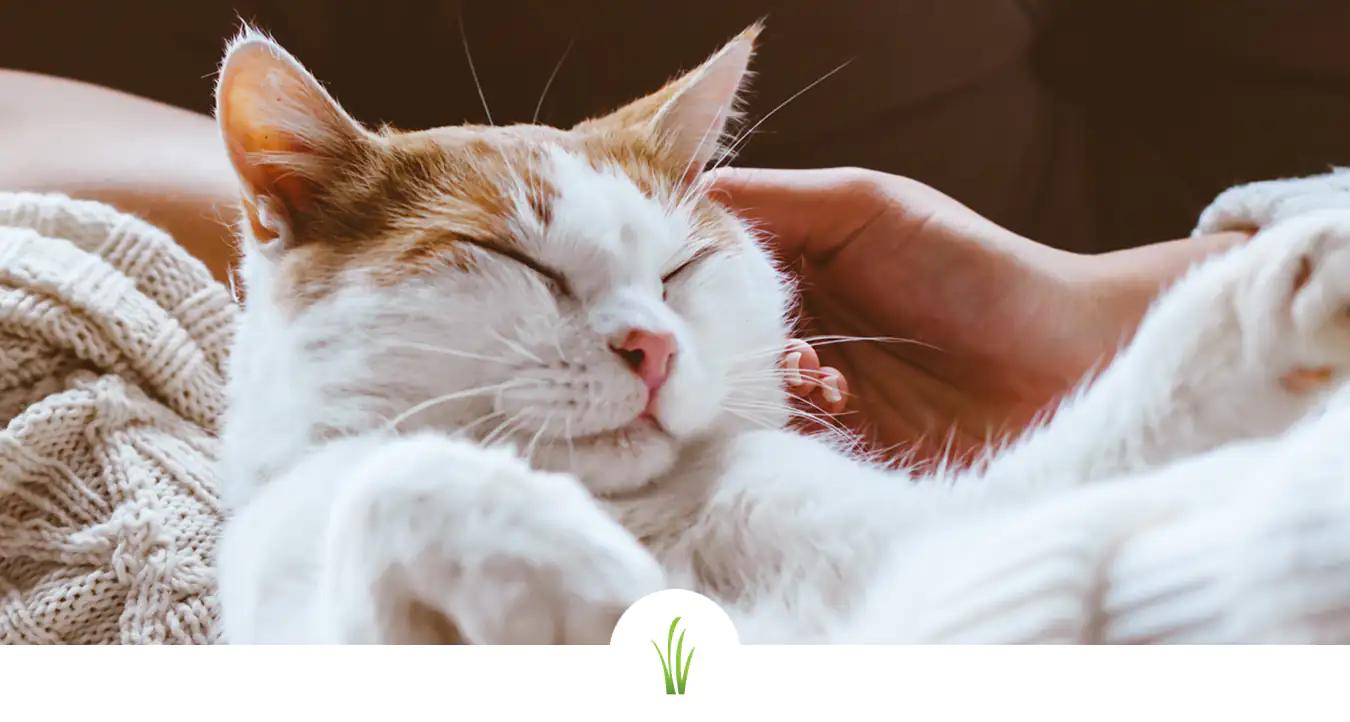
By Laura Carroll, Senior Pet Parent
In recognition of Adopt a Senior Pet Month, we want to take this opportunity to talk about the benefits of bringing an older animal into your life. There are plenty of good reasons to do so, and a few things to consider ahead of time.
Why Older Animals Need our Compassion
One important fact that may color your decision is the sad truth that older animals truly need our compassion, as they are much less likely to be adopted and therefore much more likely to be put down when shelters become overcrowded. Knowing you are actually saving an animal’s life is a wonderful thing! And you get to enjoy how much they appreciate the difference between confinement in a shelter and the comfort and security of a loving home.
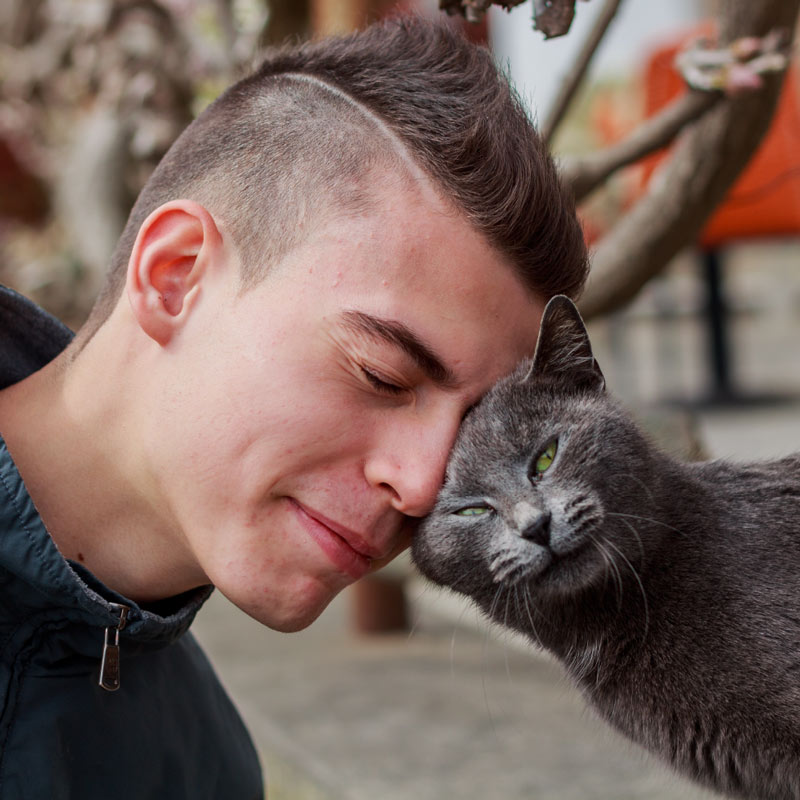
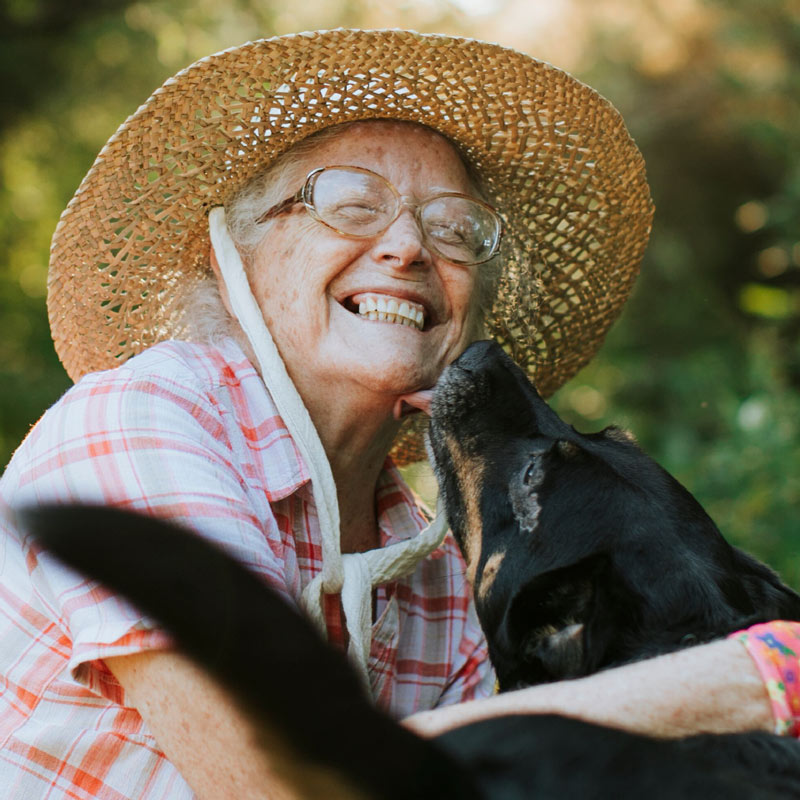
Kittens and Puppies: Adorable and Incorrigible
It’s a good thing puppies and kittens are so darned cute! It helps to balance out their often incorrigible behavior. If you’ve ever experienced their mischief directly, you’ll know what we mean. Just like young children, it’s all part of their learning and growing process, but it can be very trying. Also like young children, they require a great deal of time and attention to make sure they grow up right, while mature animals often require more of your time only initially, until they get acclimated to their new homes.
Older Pets Cause Less Damage in Your Home
Young pets who have yet to learn their manners can take a toll on your environment and possessions. Senior pets don’t require housebreaking or litter box training, and are far less likely to wreak havoc on your furniture, shoes, flower beds, and time. Most adult dogs have already been leash-trained as well, a definite benefit!


Adopting Older Pets: Temperament is Apparent
When visiting adoptable animals, you’ll notice that the seniors already have a mature personality, and while behaviors can change somewhat given a stable, loving environment, you will at least be able to tell if you’re dealing with a wild child, a playful goofball, or a consummate cuddler. With very young animals, you often don’t yet know what the adult’s temperament will be.
Some of the Most Important Things to Consider in Adopting a Mature Pet
- Aside from the increased time and attention young animals require, there’s the amount of sheer energy they need to burn off – again, a necessary component of healthy growth. And that’s not a good fit for everyone’s lifestyle. A senior animal is often a better fit for those with a more sedentary life. And although older pets generally require less exercise and are mellower than a youngster, many middle-aged cats and dogs still have plenty of energy for that nice hike, or for batting around that catnip mouse, and can be healthy and active well into their senior years. That being said, older animals are much more likely to be a settled companion who would rather spend time with you and your family than anything else.
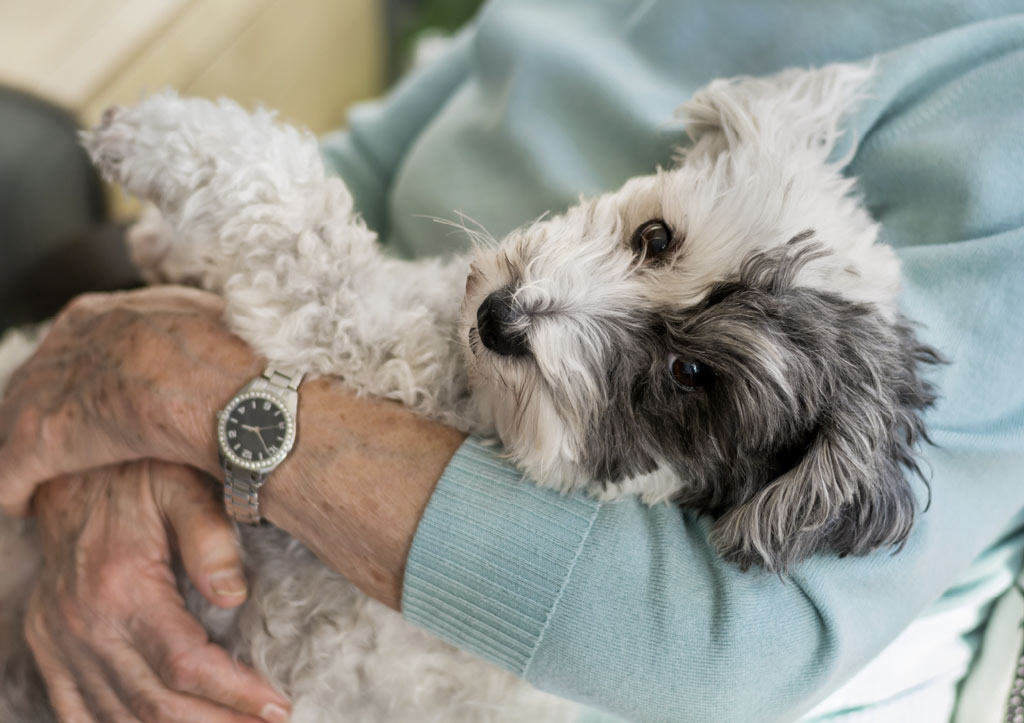
- Most older animals have already been spayed or neutered, and have often been vaccinated as well (although most shelters vaccinate all pets to the best of their ability before adopting them out, the young ones can only get so many at one time and some vacs need to be given when they’re older.) Keep in mind some vaccinations, especially for dogs, should be renewed, so be sure to ask your veterinarian about this. (Rabies, for instance, is required for licensing your dog.)
- In general, the younger the animal you adopt, the longer the commitment. Cats can live more than 20 years, and a dog’s lifespan varies more depending on the breed. Therefore, adopting an older pet may be a better choice – especially for your first pet – to help you discover whether pet ownership works with your lifestyle. For this same reason it can also be less of a financial outlay when one considers average annual expenses over the life of a pet (although this can vary widely, depending on the animal’s needs).
So now that you’ve given some thought to the above and weighed the pros and cons, we’re hoping you’ll give serious consideration to bypassing those super-cute, super-adoptable kittens and puppies and may decide to seek out an older animal to bring into your life when the time comes. (And there’s no time like the present, someone smart once said!)
9 Questions to Ask at the Shelter When Considering Adopting a Pet:
The shelter may know the answers to some of the above questions – or they may not, depending on how they received the animal, but it doesn’t hurt to ask and could be very helpful to know.
1. What gender/sex were the former owners?
2. Is the animal familiar with and comfortable around children?
3. What were the circumstances surrounding the animal’s surrender to the shelter?
4. Does the animal have a name they know, or did the shelter just recently name them?
5. Was the animal primarily an indoor or outdoor pet?
6. Did they live with other pets?
7. Was their former environment an urban/suburban/rural area?
8. Does the shelter have any of the animal’s vet records?
9. Are there any known food preferences and/or allergies?
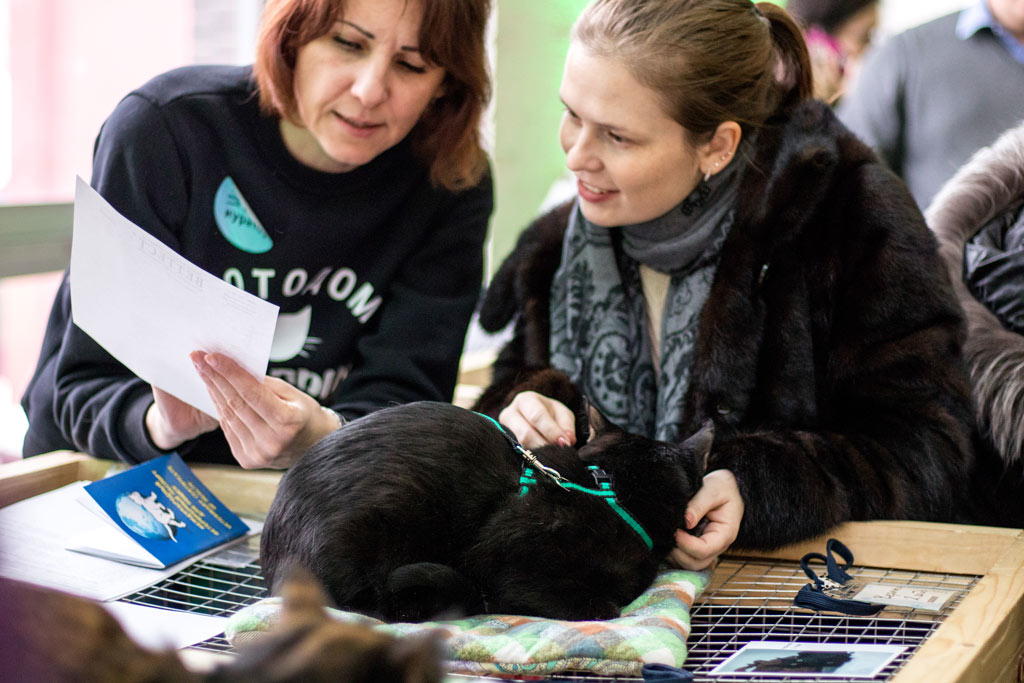
6 Tips for the Best Pet Adoptions and Family Adjustment Experience
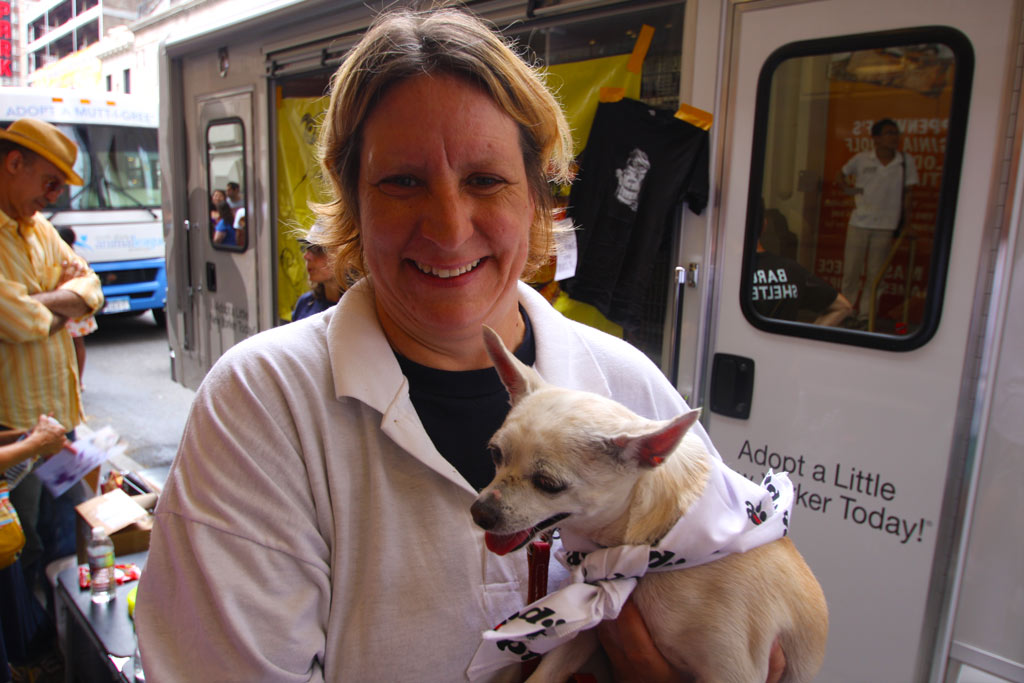
- Most shelters offer free wellness exams with an adoption. Be sure to take advantage of it, even if it’s not with your own veterinarian. Usually the vets that work with animal shelters in this way are familiar with any special needs the animals may have.
- Consider microchipping if the pet doesn't already have one. And if they do, make sure you contact the company to register new ownership. If they get loose, especially during the first weeks or months in their new home, they could try to return to familiar territory, so extra care must be taken to make sure they are always secure.
- Choose your time carefully: don’t adopt when you have a trip planned, or company coming for the holidays. You want as much calm and quiet as possible while your new family member adjusts to his or her surroundings and family. You may even want to consider taking a week’s vacation so you can bond with the animal before assuming your normal routine.
- Feed as clean and healthy a diet as possible, as the stress of a radical change in their lives, such as leaving their original home, missing their familiar environment and being held in a shelter before adoption can have an adverse effect on their immune system. (We suggest live wheatgrass or supplements to bolster the immune system.) Often shelters will send you home with a bag of the same food the animal has received while in their care, usually donated by one of the larger pet food companies, and it’s not necessarily the best thing for them.
- Make sure all residents of the home meet and interact with the animal before you adopt. Puppies and kittens are pretty much blank slates, but an older animal may need a little more time to grow accustomed to everyone, and you want to make sure everyone gets along well. They may not bond instantly, but all should be able to approach and pet the animal comfortably.
- If you have other pets, most shelters can make arrangements for a brief introduction to the new addition, to make sure there are no adverse reactions to one another. Those relationships can take time to develop, and while they may not be best buddies right out of the gate, there should be no extreme negative reactions. At-home assimilations should be planned as well, making sure each animal has their own “safe space” where they can feel protected and comfortable if they need to get away from the action.
You should be off to a great start with your new, mature pet! Remember to allow plenty of time for the animal to adjust to its new surroundings and family. Be patient, as they may be fearful at first, having to accept so much change. But one of the magical things about cats and dogs is their ability to forgive and forget, once they find themselves in a secure and stable environment. Just know that for every ounce of love you give them, it will be returned a hundred times over.